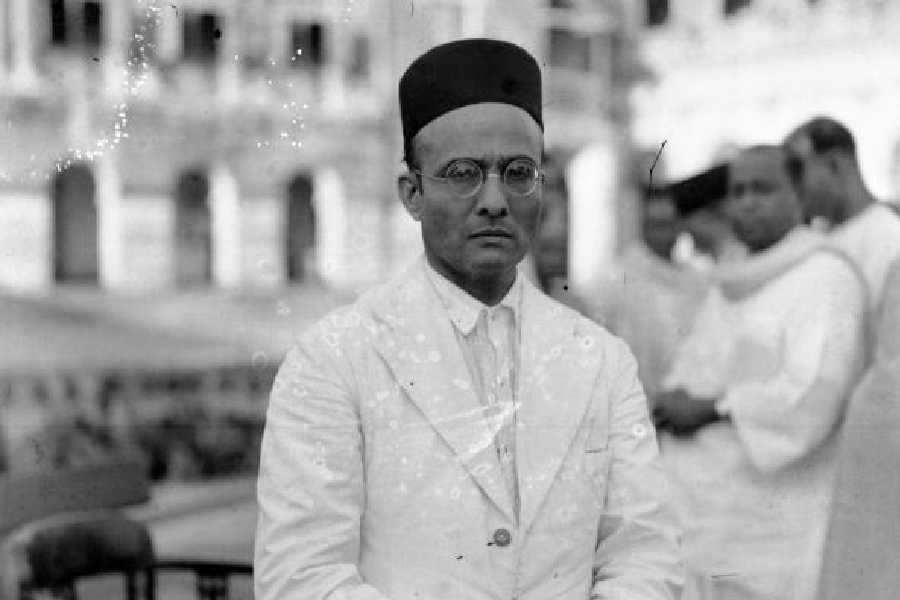The Narendra Modi government has run into allegations of using institutions under its administrative control to glorify or defend controversial Hindutva icons.
The National Council for the Promotion of Urdu Language (NCPUL), which functions under the education ministry, has published a book titled Veer Savarkar aur Takseem Hind ka Alamiya, which is an Urdu translation of the recent book Veer Savarkar: The Man Who Could Have Prevented Partition. The book defends the ideology of Hindu Mahasabha leader V.D. Savarkar.
Some historians and former officials of the council said the new narrative being built around Savarkar was contrary to the historical evidence that abounds on him.
On Thursday, the council launched the Urdu book at an event at the Prime Minister’s Museum. According to a media release, law minister Arjun Ram Meghwal said Savarkar was deeply sensitive to national unity and integrity and was therefore a strong opponent of the partition of India.
“Had his vision and planning been implemented, the country could have been saved from disintegration,” the release quoted Meghwal as saying.
The original book published in 2021 was co-authored by Uday Mahurkar and Chirayu Pandit. It has been translated into Urdu by Prof. Mazhar Asif, the vice-chancellor of Jamia Millia Islamia.
According to the release, Mahurkar said at the event that the book presents “truthful and unbiased information” about Savarkar. The book attempts to “dispel all the misconceptions spread by a specific political ideology”.
Mahurkar said the book had brought to the fore Savarkar’s “true views regarding Muslims” and showed that he respected all revolutionaries and freedom fighters who participated in the national struggle and that he considered the participation of all social classes, including Muslims, to be extremely important in the country’s journey towards all-round development.
Prof. Nadeem Rezavi, secretary of the Indian History Congress and a faculty member of history at Aligarh Muslim University, said it was Savarkar who endorsed the two-nation theory before the Muslim League adopted it in 1940.
“This is shocking. Savarkar’s promotion of the two-nation theory and his fierce anti-Muslim rhetoric are cited by some as having contributed to the climate that made partition inevitable. In his 1937 Hindu Mahasabha address, Savarkar stated that ‘there are two nations, the Hindus and the Muslims, in India’. Such rhetoric fuelled communal tensions and legitimised the idea of separate religious nationhood,” Rezavi said.
Under Savarkar’s leadership, the Hindu Mahasabha formed coalition governments with the Muslim League in Sindh and Bengal during the Quit India movement, Rezavi pointed out. In 1947, Savarkar supported Travancore dewan C.P. Ramaswamy Iyer’s declaration of independence from India, seeing it as a potential counterweight to a secular Indian state.
“But for the toxic ideas of Savarkar, perhaps partition could have been avoided. Was it not he who spoke of incompatibility of Muslims with India? He hoped for a Hindu dominance or hegemony rather than an equal partition,” Rezavi said.
A former official of the NCPUL said the council had never before published any book on controversial political personalities. “It is not the job of the NCPUL to publish books on controversial personalities. The NCPUL is supposed to publish enjoyable literature in Urdu for the promotion of the language,” he said.










